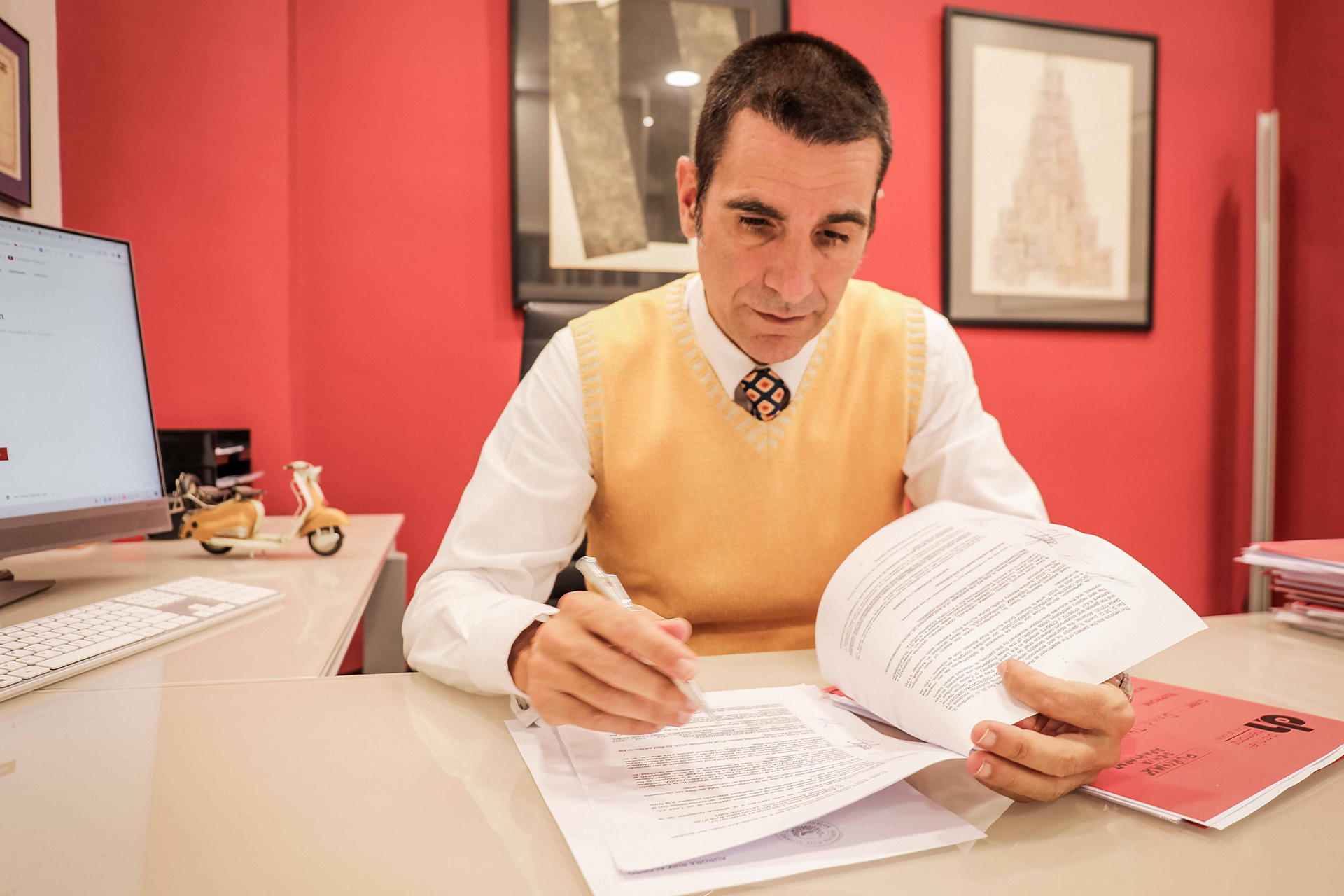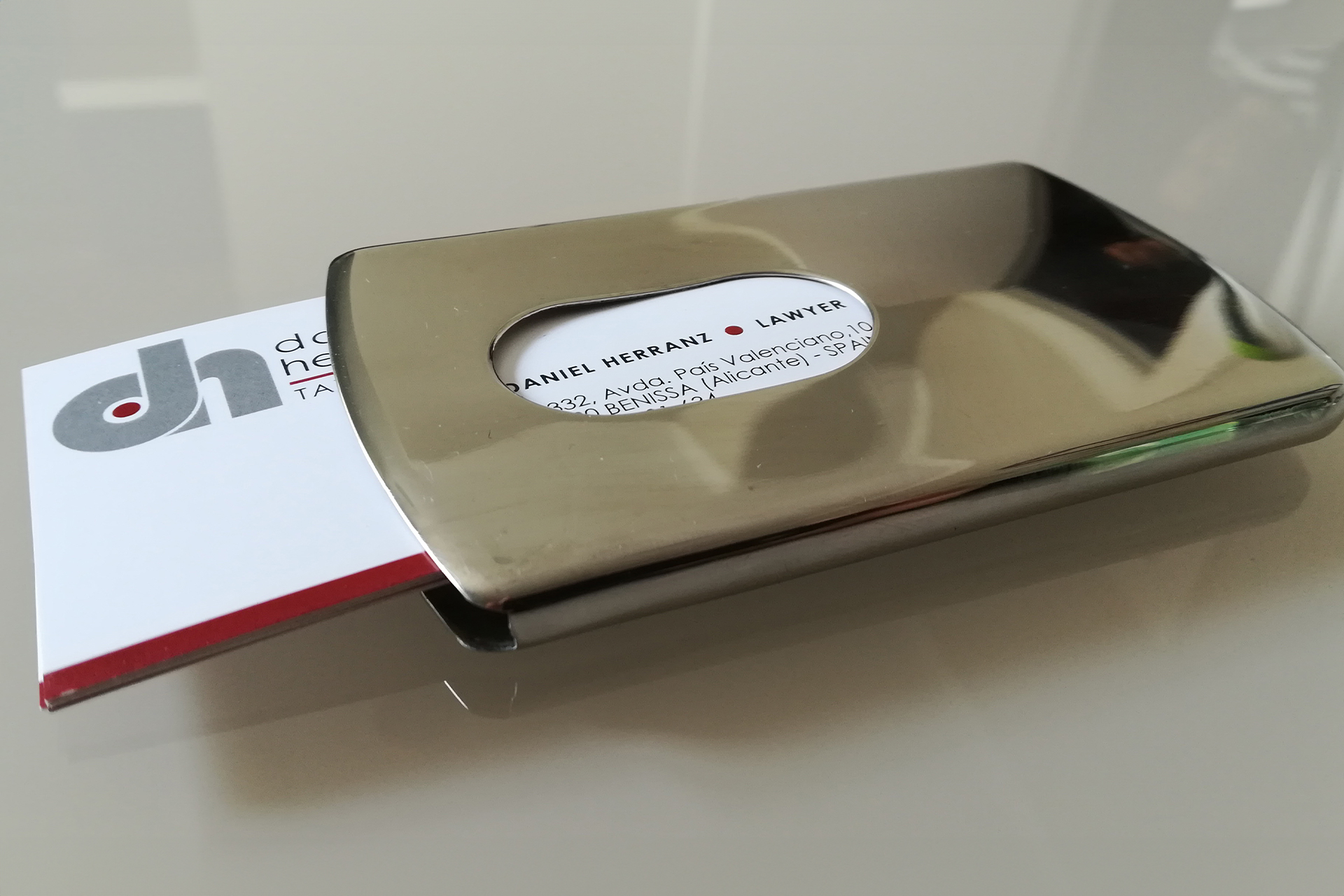
By Daniel Herranz. Award-winning Conveyancing Solicitor Based in Costa Blanca North, Spain
5 Stages of the Conveyancing Process in Spain With Real-Life Examples
If you’re buying a property in Spain, this article on the conveyancing process could save you a lot of money.
Many other articles on conveyancing in Spain say something like: “The conveyancing process in Spain begins with an offer on a house and ends when you receive the keys.”
But I don’t think it’s true.
In my 19 years’ experience as a property lawyer representing buyers in over 2,000 transactions in the Costa Blanca North, here’s what I know. An error in the conveyancing process can become a lengthy, painful and expensive problem. The negative effects last for years after getting the keys to your dream home.
I do not want you to go through this.
For this reason, I prepared a guide on the conveyancing process in Spain with real-life examples of what can go wrong at each of the 5 stages. It will let you understand exactly what it is you’re saving yourself from.
One more thing. If you’re buying a property in Costa Blanca North in Spain, you can get in touch with my team to find out more about our conveyancing services.
Click the button and leave your contact details. We’ll be in touch as soon as we can.
GET IN TOUCHStage 1: The Reservation Contract
I would say that 90% of the time, buyers start looking for conveyancing solicitors after they have signed a reservation contract.
The reservation contract is called the Contrato de Reserva in Spanish.
These are the most common features of this contract:
- The contract is signed after the seller has accepted a buyer’s offer
- The buyer pays around €5,000
- The property is removed from the real estate agency’s website and no more property visits may be undertaken
- While the property is reserved, the seller cannot accept an offer from another buyer
- The contract stipulates a period of 3-4 weeks for legal checks on the property
- The contact has clauses so that, in case legal checks are unfavourable, the €5,000 payment may be refunded to the buyer
But if you ask me?
I advise you to find a trusted property lawyer before you sign any kind of reservation contract. First of all, a lawyer can double-check the contract itself. But the most important reason is to avoid rushing around last-minute as you call up conveyancing solicitors for late-minute legal checks with a deadline looming.
For something as important as the conveyancing process in Spain you will save more money in the long run by finding the best person for the job. This requires preparation.
But life cannot always be planned to perfection.
If you are buying property in the Costa Blanca North in Spain you can get in touch with my team by clicking the button below. It doesn’t matter if you have signed the reservation contract or not yet. My assistance will be quick and fully comprehensive.
GET IN TOUCHStage 2: The Legal Checks
Regardless of whether you have found a property lawyer before or after the reservation contract, now comes the most important part of the conveyancing process: the legal checks.
There are three main places a conveyancing solicitor will go to make these checks:
- The Town Hall (Ayuntamiento) where the property is located
- The Cadastre (Catastro)
- The Land Registry (Registro de la Propiedad)
Let’s cover each of them and what a property lawyer will find there.
The Town Hall
Your conveyancing solicitor will look into legal issues existing between the property and the Town Hall.
In fact, this is where most of the issues will reside.
It was only a few years ago that the Spanish treasury conducted a nationwide study into building irregularities. This is what they found: more than 3 million ‘illegal works’ carried out on properties in nearly every municipality in Spain.
The ‘illegal works’ were:
- 1.13 million ‘alterations’ completed without permission in new-build properties
- 1.1 million ‘extensions’ and ‘reformations’ completed without permission in resale properties
- 600,000 ‘renovations’ completed without permission
- 150,000 ‘undeclared’ swimming pools
The immediate problem with the Town Hall is that these works require licences and taxes. Failure to comply leads to immediate fines. But such works also mean an increase in a property’s annual property tax. In some cases, the Town Hall can ask for 4 years’ of extra property tax payments plus interest when such an irregularity is found.
This is not the kind of surprise you want after moving into your dream home.
Below are common issues I have seen many times when checking with the Town Hall:
- Undeclared renovations
- Undeclared walls or fencing
- Undeclared swimming pools
- Undeclared terraces
- Undeclared extensions
Charges or Encumbrances
There are many reasons why a property could have charges or encumbrances (or cargas in Spanish) to pay to the town hall.
Most commonly, there are charges relating to:
- Unpaid licences and taxes for work completed on the property
- Unpaid fines for undeclared works
- Unpaid property tax payments
- Unpaid refuse collection payments
Demolition Order
Many times it’s not as easy as fixing a building irregularity by paying a fine.
The Town Hall can issue a demolition order (orden de demolición)
This could be for:
- A wall or fence built without a building licence
- A pergola built without a building licence
- A swimming pool built without a building licence
- An extension built without a building licence
You don’t want to buy a property only to have to knock a part of it down.
It is unfortunate, but these things can happen without the help of thorough legal checks from an experienced conveyancing solicitor.
The Catastro
The Catastro is a national body containing public details of every property in Spain. You can search for the official boundaries, date of construction and further details of any property you wish online by visiting the website of the Sede Electrónica del Catastro.
One of the main functions of the Catastro is in calculating the ‘catastral value’ of every property – this value determines your council tax payments.
This is why any irregularities in the Catastro must be fixed. It is common in many towns in the Costa Blanca North that every 3-4 years an aerial study will be conducted over every property in the municipality. If an undeclared extension or swimming pool or other building work is detected, this will be communicated to the Town Hall and may result in charges, encumbrances and demolition orders.
The most common issues found in the Catastro are:
- Irregularities in the actual boundaries of the property
- Irregularities in the recorded size of the property (e.g. due to an extension completed without a licence)
Land Registry
Really, the Land Registry should be combined with the Catastro into one government body. But in Spain these are two separate entities.
The most important document in the Land Registry (Registro de la Propiedad) is the Nota Simple. This is a certificate which shows who is the legal owner of the property, the description of the property and if there are charges or encumbrances on the property (for example, a mortgage).
The problems a property lawyer can find at the Land Registry include:
- Debts or charges owed to the Town Hall
- Debts or charges owed to the Spanish Tax Agency
- Issues with the legal ownership of the property (this is very common with properties inherited following the death of the previous owner, but where the new owner has not been recorded into the Land Registry)
- When part of the building or the plot is not recorded in the Land Registry (for example, this is very common with extensions completed without a licence)
So what happens when a conveyancing solicitor discovers irregularities and issues while checking with the Town Hall, the Catastro and the Land Registry?
Serious issues may lead to you backing out of buying a property and nullifying the reservation contract. This would mean you are refunded any money paid to reserve the property, and you go back to look for another property.
But this is rare.
Most of the time, legal issues can be sorted out by the owner before you buy the property.
This is why getting a conveyancing solicitor’s help is so important. When you transfer a property into your name, you also become responsible for all the debts, fines, embargos, irregularities, demolition orders, illegalities and unpaid bills.
And you may be interested to know…
I find at least one irregularity that needs fixing in 90% of all the conveyancing jobs I do. It’s usually minor, but there’s always something.

Stage 3: The Deposit Contract
Do not be upset if your property lawyer finds legal issues at the Town Hall, Catastro or Land Registry. This is what the Deposit Contract is for (the Contrato de Arras in Spain).
Here are the features of the Deposit Contract:
- The contract is written by the buyer’s property lawyer
- It details the full list of irregularities which the vendor must sort out
- Both parties agree on the purchase completion date
- 10% of the full price of the property is transferred
This contract’s function – aside from the deposit – is to request that the buyer fixes all legal irregularities before the completion date.
This is so you can purchase the property in full peace of mind.
Here’s a list of the most common tasks I will write into the Deposit Contract for a vendor to comply with:
- The vendor must pay outstanding debts on the property
- The vendor muy settle unpaid council tax bills
- The vendor must resolve any demolition orders
- The vendor must pay licences, charges or encumbrances for works completed on the property without a licence
- The vendor must cancel their mortgage on the property
- The vendor must register with the land registry any part of the property which is not currently recorded (for example, it is very common that the swimming pool is not registered)
Aside from the legal checks themselves, the Deposit Contract is the next most important part of the conveyancing process in Spain. You can’t back out of the property purchase without losing your 10% deposit.
However, with a thorough conveyancing solicitor, you will now be buying the property knowing there are no hidden surprises.

Stage 4: The Signing of the Deed
Now we reach the completion date: the signing of the deed.
In Spanish this is called the Escritura and must be signed at the Notary’s office. The Notary’s function is to review all the paperwork provided, confirm the buyer has fulfilled the obligations of the Deposit Contract, and oversee the signing itself.
Please note. A Notary can only review what’s in front of them. In other words, it’s not their job to look for any legal irregularities gone unnoticed or give legal advice. That is the function of the conveyancing process in Spain.
Now two important events can happen:
- The property’s new ownership is recorded in a new deed
- The remaining balance is transferred to the seller (either direct transfer or from the bank mortgaging your property)
This is when you will receive the keys to the property.
Assuming your conveyancing solicitor has done a thorough and comprehensive job, you will not be facing any lengthy and expensive legal issues with your new dream home in Spain.
What if I Can’t Make the Completion Date?
You do not need to be physically in the Notary’s office to complete the transfer and sign the date.
The majority of my clients in the Costa Blanca North in Spain are foreign residents. Many times it’s their first purchase in Spain. They cannot always attend the meeting on the completion date.
What can we do?
For my clients, we can arrange power of attorney and represent you as your property lawyer to sign the deed in your name. You don’t need to be there yourself.
Check with your chosen conveyancing solicitor regarding power of attorney in case you will need this.

Stage 5: The Registration of Ownership
The Notary’s next task is to register the new deed of ownership with the Land Registry.
For most conveyancing solicitors in Spain, their relationship with the client ends on the completion date.
Not for our clients.
We are one of the few conveyancing solicitors in Costa Blanca North who continue to help with your next task: transferring all relevant bills into your name. In a new country and especially with a language barrier it can be confusing to achieve this.
With Daniel Herranz conveyancing solicitors you will get assistance with:
- Changing the property tax payments (IBI) into your name
- Changing the refuse collection payments into your name
- Changing the electricity, gas and water bills into your name
We can also set up any direct debits that are necessary.

Get in Touch With Daniel Herranz Conveyancing Solicitors
Are you buying a property in the Costa Blanca North in Spain?
No matter what stage of the purchase process you are in, I recommend you start talking with a property lawyer as soon as possible. My conveyancing solicitors’ office has assisted with over 2,000 property transfers since 2005. I cannot calculate how much time and money we have saved all these clients – but it is measured in years and millions.
You can speak to us if you’re buying in or near to any of the following larger towns: Teulada-Moraira, Benissa, Javea, Benitachell, Alcalali, Jalon, Orba, Denia, Benidoleig, Denia, Calpe, Gata de Gorgos, Jesus Pobre, Lliber, Parcent, Pedreguer.
As you can imagine, I am very busy on a daily basis with conveyancing clients.
If you telephone my office I may not be able to take your call.
This is why I recommend you leave your details using our contact form. We respond to all conveyancing-related emails within the same day (if sent between 9am to 4:30pm Monday to Thursday and 9am to 3pm on Fridays).
I may need to request a suitable time for a telephone call or videoconference to answer questions or find out more information. Then, you can get a fully itemised quote tailored to your exact request.
Look forward to speaking with you.
GET IN TOUCH